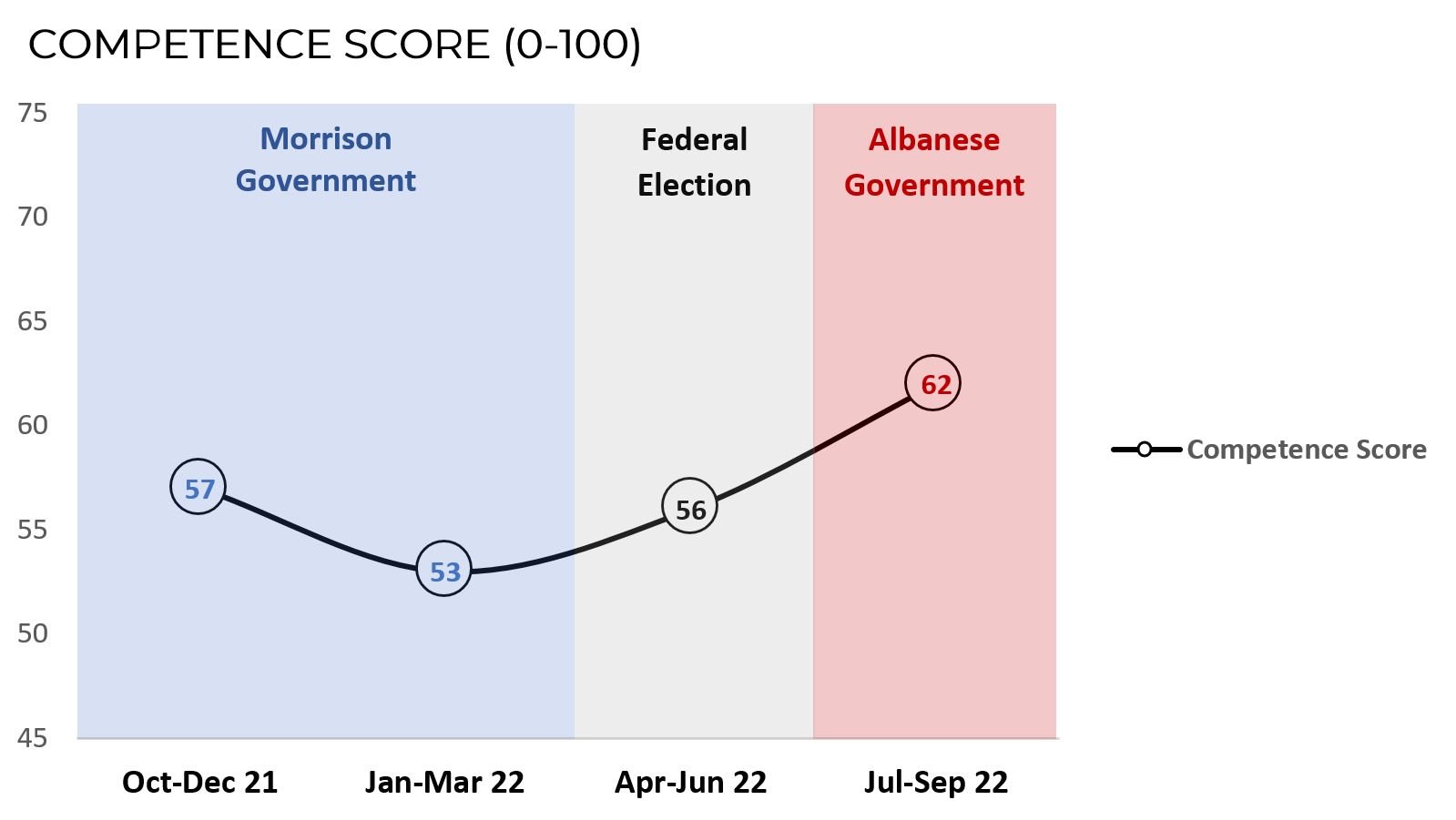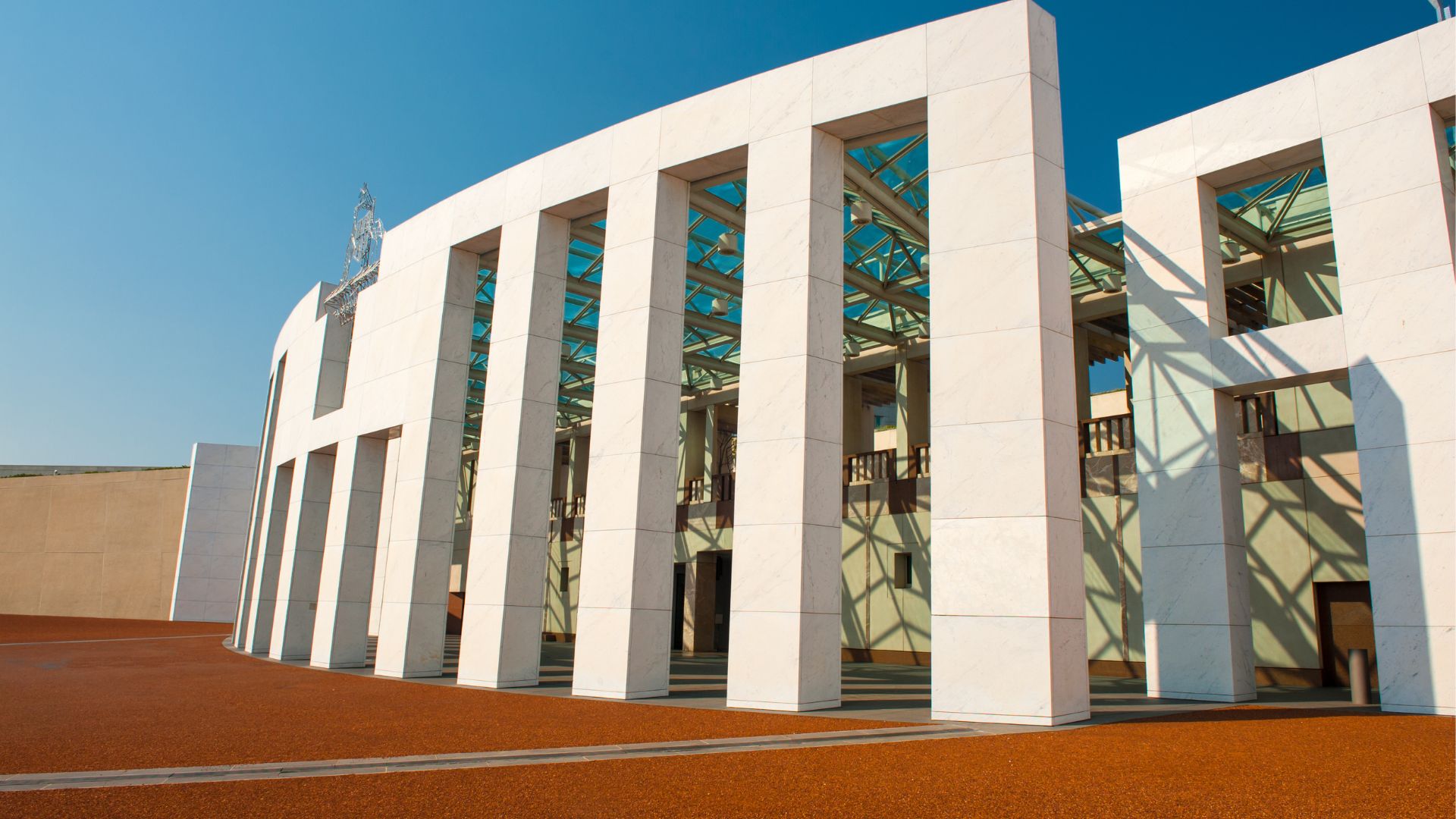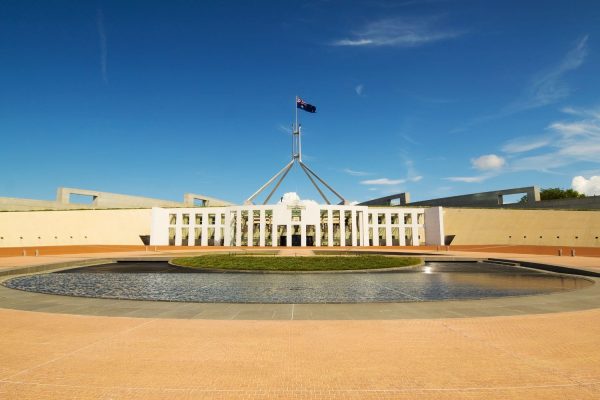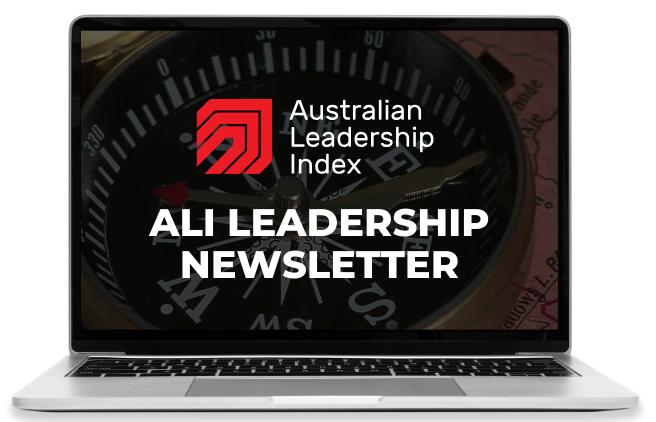Written by Vlad Demsar, Samuel G. Wilson, and Melissa A. Wheeler
New data from the recently re-launched Australian Leadership Index shows that public confidence in the Albanese government has sharply increased.
Prior to the recent election, which took place in May 2022, public perceptions of federal government leadership hit a low of 52/100, after numerous corruption, integrity, and transparency-related accusations involving the Morrison government. However, the latest data from the leadership index reveals that, since taking over in May, the Albanese government has fostered a positive shift in public perceptions. This has translated into an increase in leadership scores, which have climbed to 61/100 in the July – September 2022 quarter, an increase of 17% compared to the low of 52/100 for the Morrison government prior to the federal election. This is shown in Figure 1 below.

RESTORING PUBLIC FAITH IN GOVERNMENT INTEGRITY
The positive shift in overall leadership perceptions for the Albanese government is driven by a substantial improvement in perceptions of public integrity compared to the Morrison government. In the survey, ‘integrity’ refers to the community’s judgements made about the federal government’s transparency, accountability, trustworthiness, and other factors.
In the final 12 months of its elected term, the Morrison government was plagued by integrity crises, including the bushfire crisis, sport rorts affair, airport land scandal, sexual assault allegations, car park rorts, robodebt, and ministerial portfolio scandal, among others. This resulted in public perceptions of federal government integrity hitting a low of 51/100 in the January – March 2022 quarter, prior to the 2022 federal election. Since taking control, perceptions of Albanese government integrity have increased to 60/100, following the announcement of a federal anti-corruption commission, investigations into historical ministerial misconduct, and several other initiatives designed to restore public integrity. The positive trend is shown in Figure 2 below.

The shift in integrity was largely driven by improved scores for honesty (+10 points), genuineness (+9), legitimacy (+9), care for the community (+9), and accountability (+9) for the Albanese government, compared to the Morrison government. Whether this strong positive trajectory will continue remains to be seen in the coming months, as the government settles in to its first term and election hype wears off.
CONTRIBUTING TO THE GREATER GOOD OF SOCIETY
While perceptions of contribution to society are heading in the right direction, there is still more work to do for the Albanese government in this space. In the survey, ‘contribution’ refers to judgements made about the government’s contribution to financial outcomes, societal welfare, environment, and other factors. Since the new government assumed power, perceptions of federal government contribution have increased from 55/100 in Jan – March 2022 to 60/100 in July -September 2022, shown in Figure 3 below.

So far, the most significant improvements compared to the Morrison government have been in relation to environmental sustainability (+13), reducing environmental impact (+9), cultural inclusion (+10), and improving societal welfare (+8). This is perhaps not surprising given the Albanese government’s more aggressive stance on climate change targets, inclusion of First Nations flags at press conferences, and increasing the minimum wage / unemployment benefits to match the rate of inflation.
In contrast, only marginal improvements have been made in relation to driving financial outcomes (+2), education (+3), and employment opportunities (+4). The new government still has work to do in these areas, particularly given the challenging economic climate it faces in 2022 and beyond.
DEMONSTRATING COMPETENCE THROUGH COMMUNICATION
During its most recent term, the Morrison government faced allegations of incompetence, particularly in relation to domestic and international border closures, cooperation with state governments, pandemic and disaster relief response, and the vaccine rollout. This was exacerbated by unclear direction and communication regarding how decisions were made to benefit Australians in need.
As such, this translated into a fall in competence scores to 53/100 in January – March 2022, followed by a strong increase to 62/100 once the Albanese government assumed control In July – September 2022. In the leadership index survey, ‘competence’ refers to judgements made about the federal government’s purpose, skill, efficiency, value creation, and other factors.

When it comes to competence, the biggest improvements have
been in relation to actively engaging with citizens (+10), governance processes
(+10), having a clear purpose (+9), demonstrating skill (+9), creating voter
satisfaction (+9), and being responsive to the needs of society (+9). This
reflects the increased level of communication, decisive action, and
responsiveness shown by the Albanese government in its first few months in
charge.
While the new Albanese government is trending positively on
leadership, integrity, contribution, and competence metrics, we need to keep in
mind that these scores are still hovering around the 61/100 mark, signalling
there is lots of room for further improvement. Associate Professor Samuel
Wilson, a co-founder of the index, said “these results point to a partial
recovery of public trust in federal government. They also reveal that, in order
to be seen to be seen as serving and protecting the public interest, federal
government leaders must finely balance a commitment to public integrity,
competence and contribution.”
ABOUT THE INDEX
Re-launched in October 2021, the leadership index is the largest ever, ongoing research study of leadership in Australia, created by Swinburne University of Technology. The research aims to improve leadership across the government, public, private, and not-for-profit sectors by tracking how Australians view leaders and reporting the results back to leaders and the community via an interactive online platform.
The Index surveys thousands of Australians on an ongoing basis and quantifies their perceptions of leadership, and its three main drivers: integrity, contribution, and competence (as well as several other key metrics). Participants are asked to provide a score from 0 to 10 on each dimension, and results are converted to a score out of 100.
Australian Leadership Index survey results are updated monthly and publicly available through an interactive online dashboard (available here).




